Jedno z podejść badawczych w historii filozofii polega na usytuowaniu wielkich myślicieli przeszłości w historycznym kontekście, w którym pracowali i określeniu, jakie społeczne, polityczne, kulturowe i filozoficzne okoliczności wpływały na ich idee. To podejście z pewnością ma swoje zalety, szczególnie jeśli chodzi o pomoc w poprawnym zrozumieniu co filozof miał na myśli, mówiąc to lub tamto. Jednakże realizowane nazbyt konsekwentnie, może oderwać nas od tego, co sami myśliciele uważali za istotne. Filozofowie przeszłości nie pisali po to, aby odzwierciedlić swoje czasy lub zapewnić przyszłym historykom coś do zrobienia. Ich praca była nakierowana na sprawy poza nimi, na coś innego – na prawdę o rzeczach – i co ostatecznie ma znaczenie, na to, czy udało im się ją osiągnąć. Jak sam Akwinata niegdyś napisał, „studiowanie filozofii nie polega na badaniu co kto sądził, lecz na badaniu jak się rzeczy mają”. Fragment z książki Edward Feser (ur. 1968), amerykański filozof, pisarz i wykładowca Pasadena City College w Kalifornii. Będąc ateistą nawrócił się na katolicyzm dzięki lekturze dzieł św. Tomasza z Akwinu i Arystotelesa. Jego Tomasz z Akwinu: Przewodnik dla początkujących jest bardzo popularnym wśród amerykańskich studentów wprowadzeniem do filozofii Akwinaty.
Edward Feser Volgorde van de boeken (chronologisch)
Edward Feser is een hedendaagse filosoof wiens werk zich voornamelijk bezighoudt met de filosofie van de geest, moraalfilosofie, politieke filosofie en godsdienstfilosofie. Door National Review erkend als "een van de beste hedendaagse schrijvers over filosofie", biedt Fesers benadering diepe inzichten in complexe filosofische concepten. Hij behandelt zowel gespecialiseerde filosofische onderwerpen als bredere culturele en politieke kwesties, vaak vanuit een conservatief en traditioneel katholiek perspectief. Zijn schrijven wordt gekenmerkt door indringende analyses en een bedachtzame verkenning van fundamentele vragen.
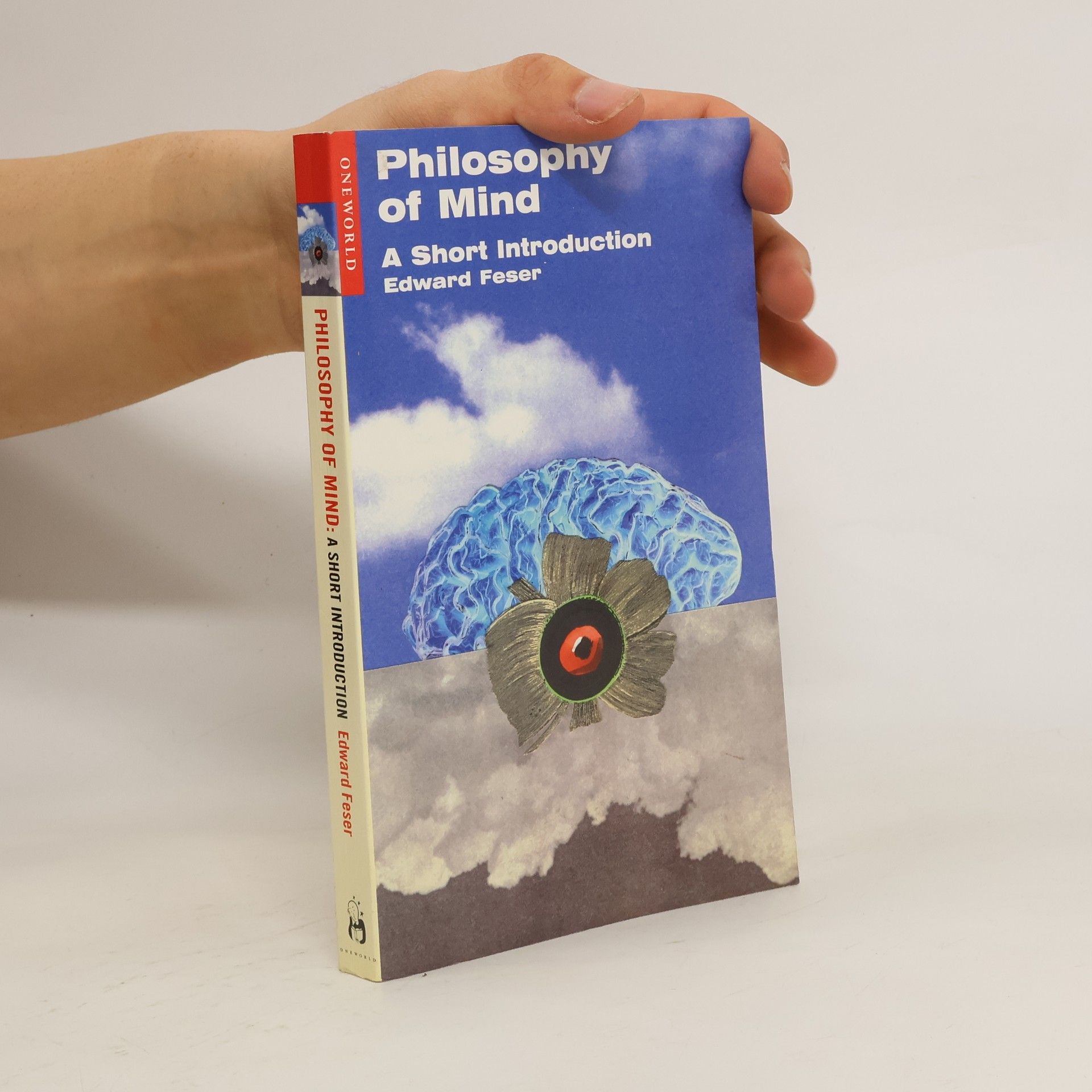

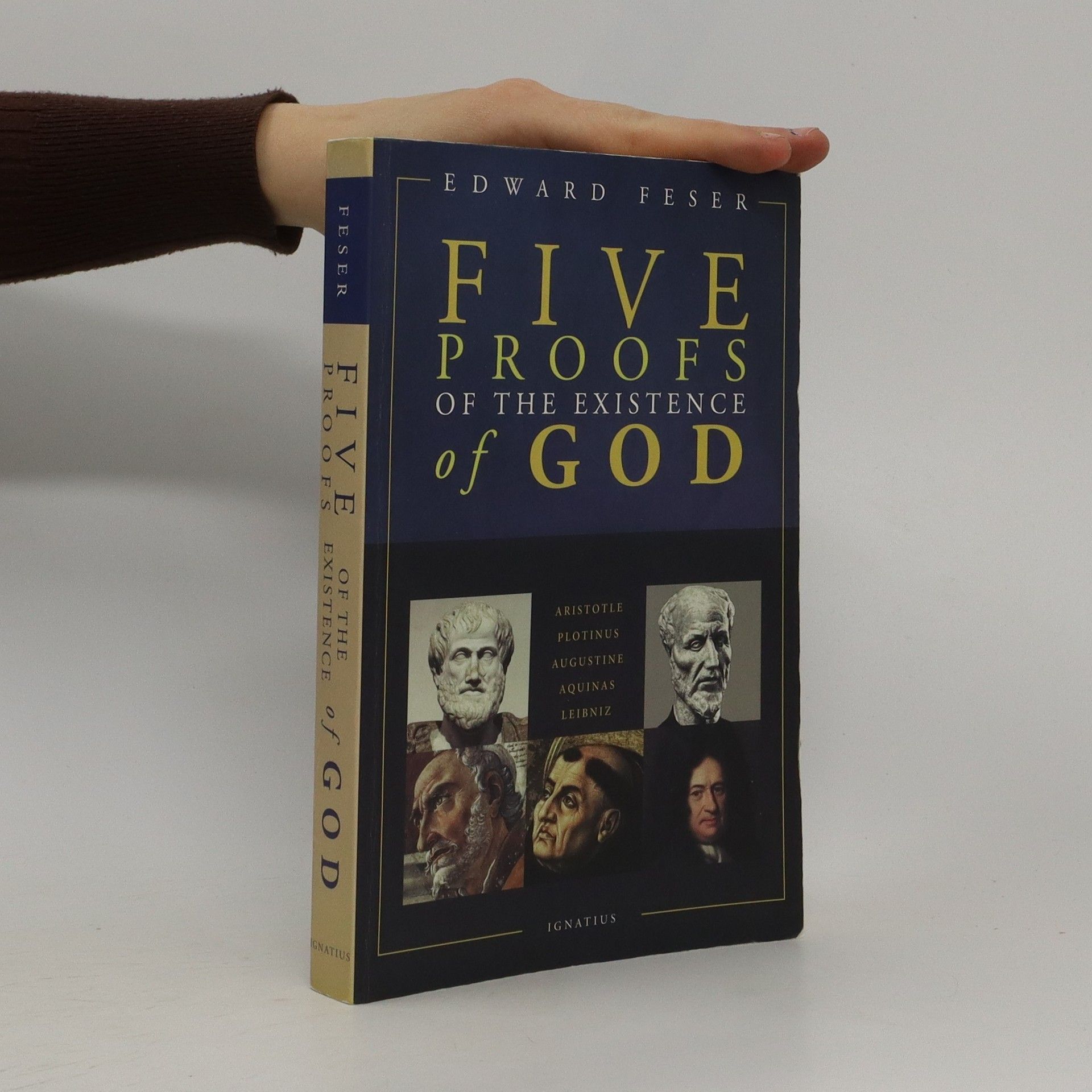
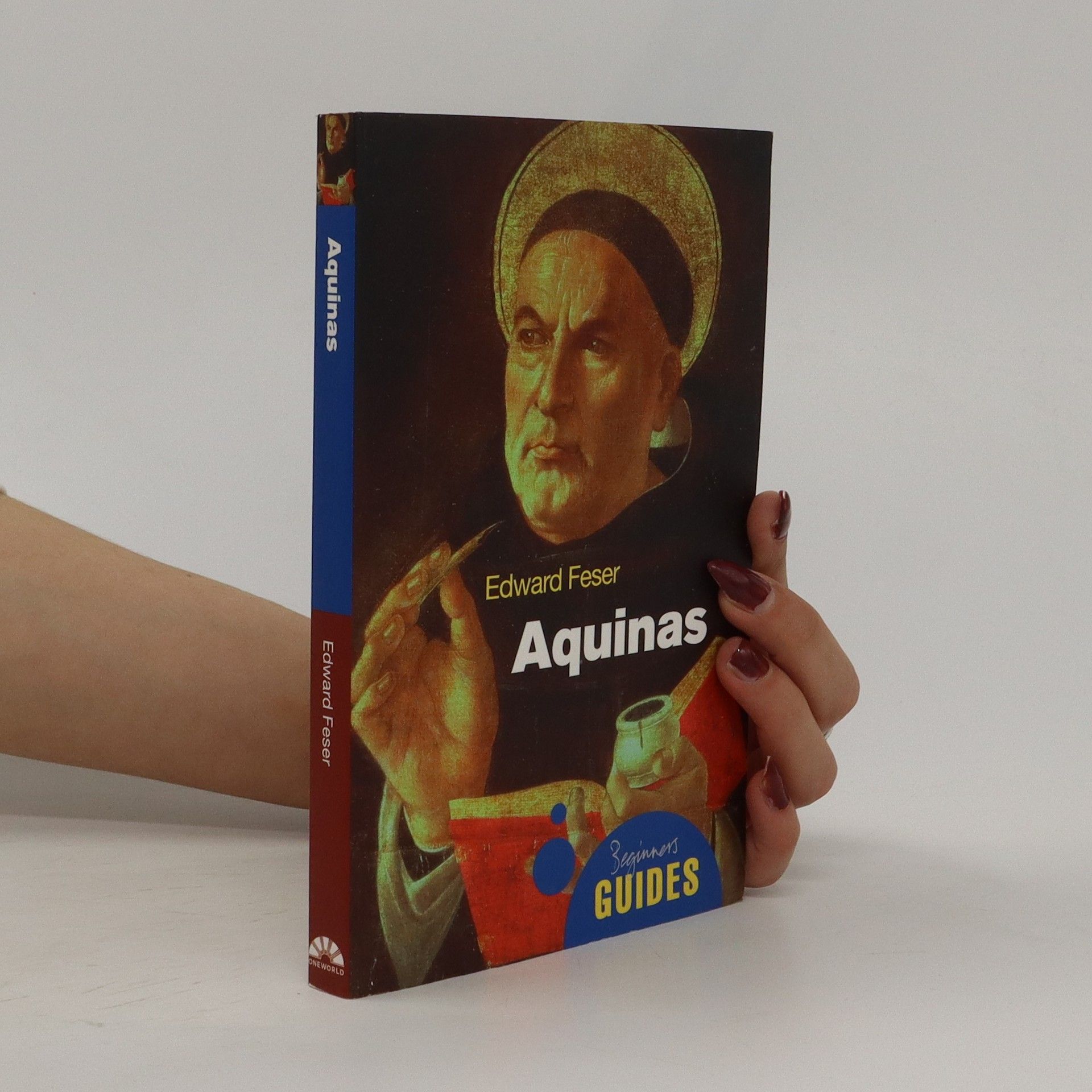
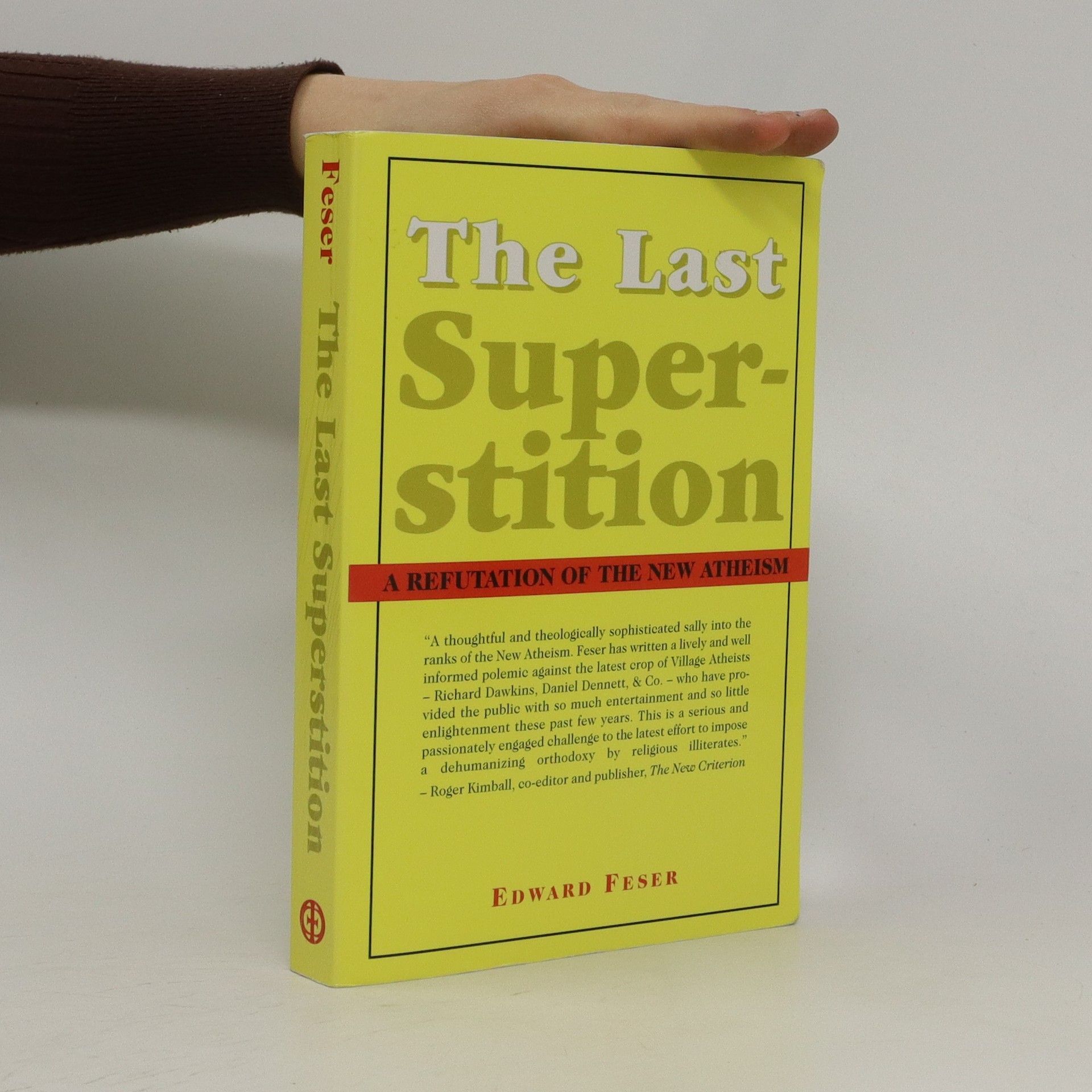
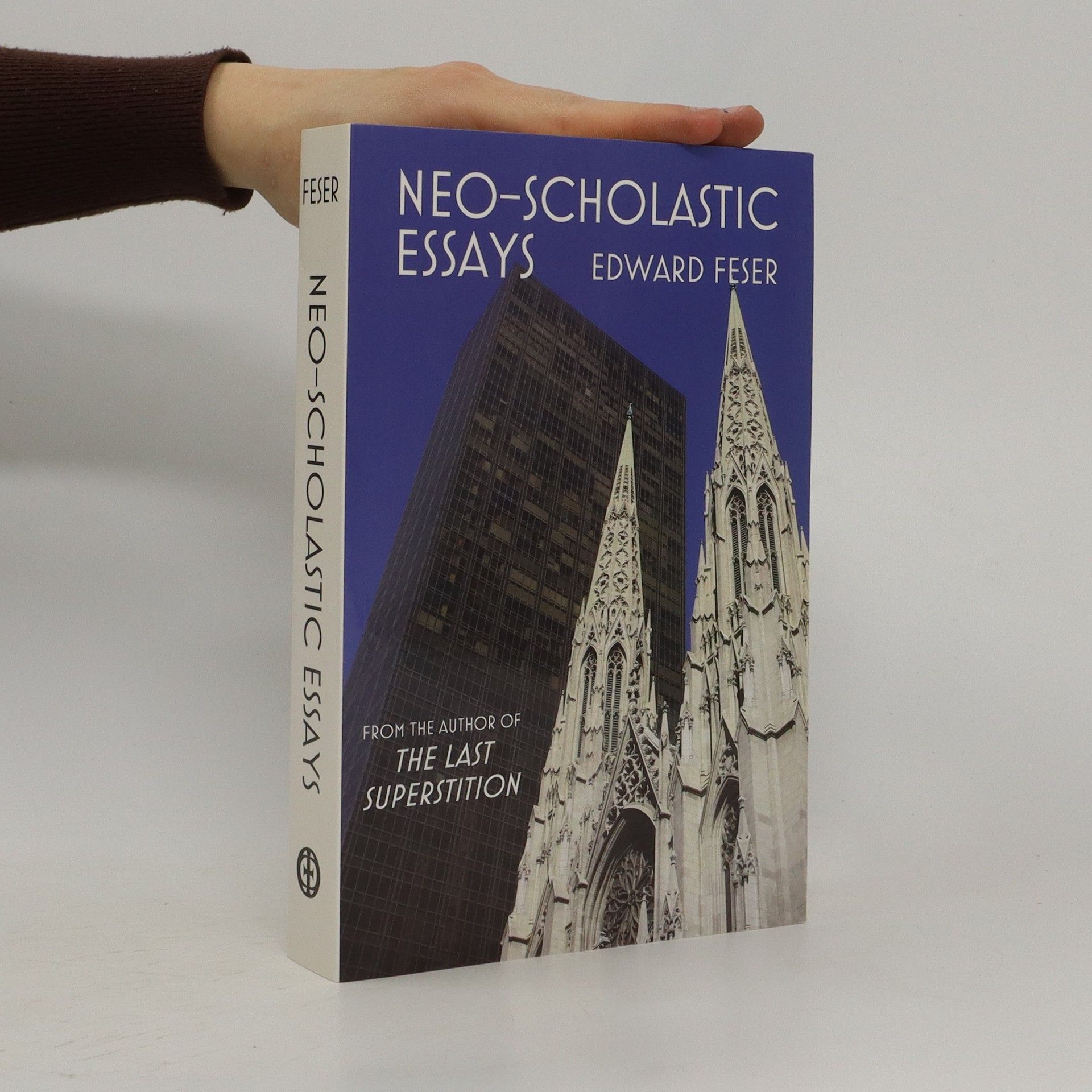
Alles in Christus
Eine katholische Kritik des Rassismus und der Kritischen Rassentheorie
- 122bladzijden
- 5 uur lezen
Pięć dowodów na istnienie Boga
- 328bladzijden
- 12 uur lezen
Sam Guzman pokazuje, że katolicki dżentelmen nie może być bożonarodzeniowym i wielkanocnym „katolikiem od święta”, traktującym wiarę jak bufet, przy którym zamawia się przekonania pasujące do określonego stylu życia. Powinien postępować w zgodzie z prawdą objawioną przez Chrystusa Pana. Dzisiaj, kiedy – jak nigdy dotąd – kwestionuje się nawet samo znaczenie bycia mężczyzną, warto na nowo postawić pytanie o to, kim jest mężczyzna i jak ma nim być. Autor w zwięzłych rozważaniach zajmuje się różnymi aspektami męskości, w tym m.in.: wychowaniem, życiem duchowym, tradycją.
Five Proofs of the Existence of God
- 336bladzijden
- 12 uur lezen
Five Proofs of the Existence of GodÊprovides a detailed, updated exposition and defense of five of the historically most important (but in recent years largely neglected) philosophical proofs of God's existence: the Aristotelian proof, the Neo-Platonic proof, the Augustinian proof, the Thomistic proof, and the Rationalist proof. Ê This book also offers a detailed treatment of each of the key divine attributes -- unity, simplicity, eternity, omnipotence, omniscience, perfect goodness, and so forth -- showing that they must be possessed by the God whose existence is demonstrated by the proofs.Ê Finally, it answers at length all of the objections that have been leveled against these proofs. Ê This book offers as ambitious and complete a defense of traditional natural theology as is currently in print.Ê Its aim is to vindicate the view of the greatest philosophers of the past -- thinkers like Aristotle, Plotinus, Augustine, Aquinas, Leibniz, and many others -- that the existence of God can be established with certainty by way of purely rational arguments.Ê It thereby serves as a refutation both of atheism and of the fideism which gives aid and comfort to atheism. Ê
Neo-scholastic Essays
- 415bladzijden
- 15 uur lezen
"In a series of publications over the course of a decade, Edward Feser has argued for the defensibility and abiding relevance to issues in contemporary philosophy of Scholastic ideas and arguments, and especially of Aristotelian-Thomistic ideas and arguments. This work has been in the vein of what has come to be known as "analytical Thomism," though the spirit of the project goes back at least to the Neo-Scholasticism of the period from the late nineteenth century to the middle of the twentieth. Neo-Scholastic Essays collects some of Feser's academic papers from the last ten years on themes in metaphysics and philosophy of nature, natural theology, philosophy of mind, and ethics. Among the diverse topics covered are: the relationship between Aristotelian and Newtonian conceptions of motion; the varieties of teleological description and explanation; the proper interpretation of Aquinas's Five Ways; the impossibility of a materialist account of the human intellect; the philosophies of mind of Kripke, Searle, Popper, and Hayek; the metaphysics of value; the natural law understanding of the ethics of private property and taxation; a critique of political libertarianism; and the defensibility and indispensability to a proper understanding of sexual morality of the traditional "perverted faculty argument.""--
The Last Superstition
- 312bladzijden
- 11 uur lezen
Professor Edward Feser argues here that Richard Dawkins has it all wrong. God is not a hypothesis, to be replaced if a more satisfactory theory comes up. Quite the contrary, Feser suggests, the existence of God can be proved by rationally compelling arguments. He thinks that not only is Dawkins wrong about this but so are his fellow atheists Christopher Hitchens and Sam Harris, all three of whom are frequently subject to humorous and telling remarks.
Aquinas. A Beginners Guide
- 224bladzijden
- 8 uur lezen
Charting the life and thought of this hugely influential medieval thinker.One of the most influential philosophers and theologians in the history of Western thought, St Thomas Aquinas established the foundations for much of modern philosophy of religion, and is infamous for his arguments for the existence of God. In this cogent and multifaceted introduction to the great Saint's work, Edward Feser argues that you cannot fully understand Aquinas' philosophy without his theology and vice-versa. Covering his thoughts on the soul, natural law, metaphysics, and the interaction of faith and reason, this will prove a indispensable resource for students, experts or the general reader.
Philosophy of Mind
- 192bladzijden
- 7 uur lezen
In this lively introduction to the philosophy of mind, important questions are tackled with clear explanations of all the theories of mind, from the classic accounts of Descartes and Aquinas to the developments in computing and cognitive science
"Using straightforward language without sacrificing philosophical depth, this guide outlines the major schools of thought and their different perspectives on consciousness, personal identity, and the mind-body problem. It takes seriously the arguments both for and against dualism - the view that there is a real distinction between mind and body - and is thus the first introductory text to reflect the growing challenge by contemporary philosophers to the dominant materialist doctrine." "Full of examples and scenarios, and featuring a glossary of key terms and chapter by chapter guides to further reading, this is a clearly-written, balanced and up-to-date introduction to one of the most popular fields in modern philosophy."--BOOK JACKET.
